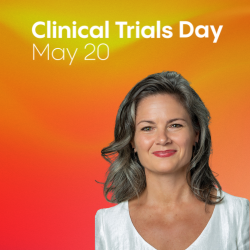The moral argument is self-evident and powerful, but improving diversity in the clinical trial patient population and workforce is also the right thing to do from a scientific perspective, says Elligo Health Research CEO John Potthoff.
Demonstrating a drug’s efficacy for the entire population, and not just a well-represented subset, is “hard to do” unless a wider spectrum of patients is included in clinical trials, Potthoff says.
It’s vitally important for the clinical trial industry to do a better job of designing trials with underrepresented populations in mind and “making them more accessible for everyone,” Potthoff adds. He’s a big advocate of leveraging clinical trials as a care option, especially in areas of the country lacking access to high-quality healthcare.
“We find that bringing trials in as part of general healthcare helps accessibility” in those areas, Potthoff notes. He also calls for an increase in minority representation in the clinical trial workforce. “It helps to build trust and leverage relationships” to help encourage traditionally wary or reluctant patient populations to consider participating in a clinical trial, he says.
Last month, Elligo Health Research announced a partnership with Laguna Clinical Research Associates. The companies will partner with approximately 20 urgent care locations in diverse communities—with Laguna providing medical services and offering clinical research as a care option through Elligo to diverse patient populations—while focusing on uniting clinical experts with high-quality research infrastructure, creating a clinical trial execution solution for enhanced patient access and engagement. Their new model engages research-capable healthcare providers and patients to expand these resources while enabling access to standards-based eSource data directly from clinical research sites.
Support Workforce Diversity by Joining ACRP’s Partners in Workforce Advancement
Partners in Workforce Advancement is a multi-stakeholder collaborative initiative to grow and expand the diversity of the clinical research workforce, and to set and support standards for workforce competence.
Key to the success of efforts such as these, Potthoff says, is stressing to the community that it’s a long-term partnership and not something being set up for a single trial. “It must be a sustainable” effort in order for the local community to embrace it, he adds.
Author: Michael Causey



